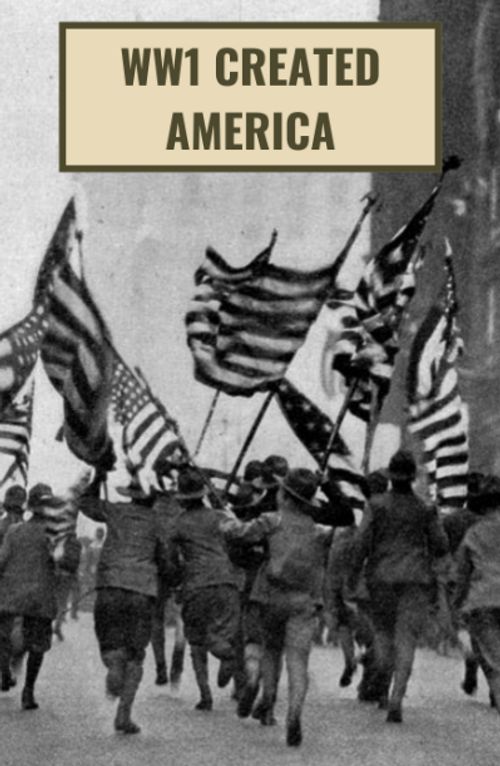How the first world war CREATED America
May 16, 2022 · 2 mins read
0
Share

Introduction. During WW1, Woodrow Wilson, the US President, said: "It is not an army we must shape, it is a nation." In his Jefferson Lecture of 1988, Robert Nisbet, a sociologist, explains what Wilson meant. He also explains how WW1 reshaped the US into a radically new country👇
Save
Share
Nisbet: "Prior to 1914 American was probably the most decentralized, deployed and dispersed, and also regional and local government among all the Western nations. In truth the average citizen's only contact with the national state prior to the Great War was through the postman."
Save
Share
When the US entered the War, a wave of centralization set in that was never reversed. Nisbet remarks: "Congress turned over economy, social organization, and individual consciousness to the President, Woodrow Wilson." Everything from the telephone to factories were nationalized.
Save
Share
Wages in the US were set by the "War Labor Policies Board" and the "War Industries Board" exercised supreme control over "all aspects of production." At every level, "state and local governments" were over-ridden.
Save
Share
Wilson waged war not just in Europe, but also on "the hearts and minds" of Americans. He created a taskforce of Four Minute Men: "Each Four Minute Man was entitled to invade any public meeting, religious or lay, & speak for not less than four minutes on the holiness of the war."
Save
Share
There were 75,000 four minute men. There were many more "neighborhood watchers" - another "innovation in thought management." People were told to lookout for "conceivably disloyal remarks" - it became a "wonderful opportunity to bring patriotism to the aid of personal grudges."
Save
Share
Nisbet: "In 1917, at Wilson's request, Congress passed the Espionage Act under which individuals found guilty of impeding war conscription or challenging national patriotism could be sent to Federal prison."
Save
Share
In the post war years, Congress and the executive branch rolled back some draconian measures while consolidating on others. Domains like "education, social welfare, even crime enforcement" came under the increasing top-down influence of Washington D.C
Save
Share
One consequence of the "military discipline of war" was an induced "indifference" towards "nonmilitary authorities" such as "family, church, local community, and venerable codes of morality." After WW1, "dress, conversation, and conversation" were infected by a "new informality."
Save
Share
Bottom line. After the war came a new slogan: "We Planned in War, Why not in Peace?" WW1 permanently expanded the scope of the US Federal government and corroded America's erstwhile decentralized nature. WW1 created the America of today: a great nation of weak communities.
Save
Share
0